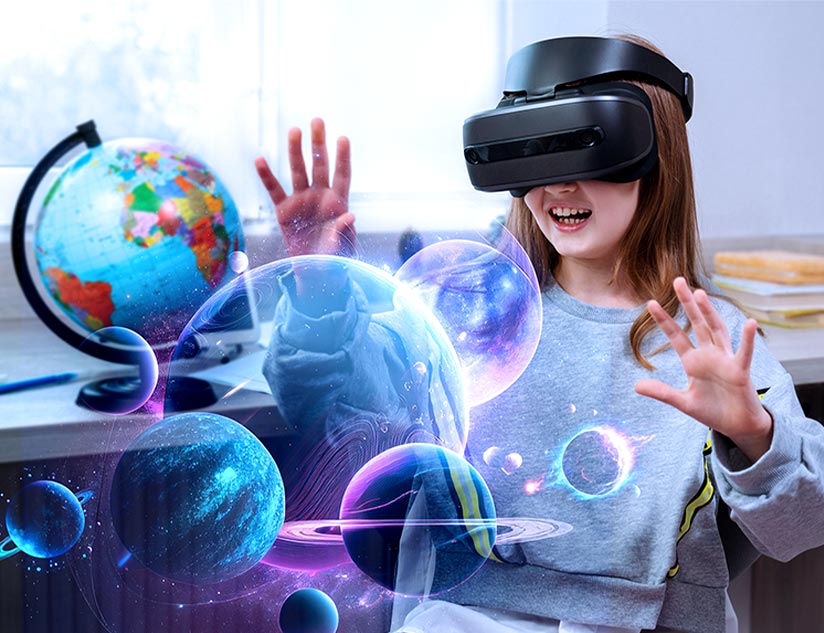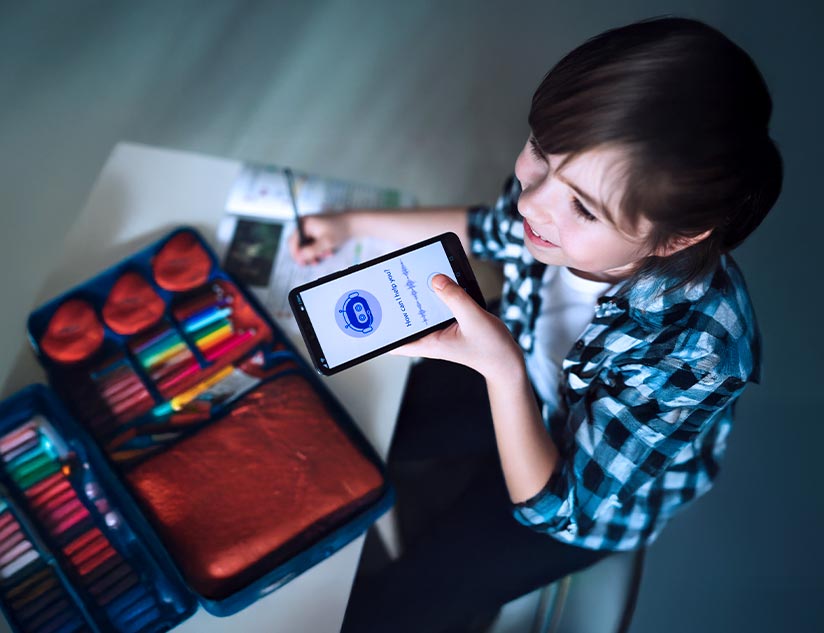How wonderful it would be if students could experience how the Shakespearean era felt with costumes and ambiance, being transported into the realms of imagination just like the author intended to offer extraordinary literary experiences. Or even see first-hand how the tectonic shifts shaped the mountains and seas. While time travel seems like a distant dream, experiential, immersive learning isn’t. Artificial intelligence (AI) and virtual reality (VR) are available today to disrupt learning delivery and course authoring. Discover how these technologies can enable personalized education by adapting experiences and learning paths to individual requirements.
AI is the MasterChef of Learning
AI is progressing rapidly to play a pivotal role in redefining how courses are designed and planned. AI-assisted course planning leverages students’ learning analytics to identify their specific requirements. It crafts personalized learning paths by adjusting the difficulty level of content, explanations, and examples to keep learners engaged. The technology discovers individual strengths and weaknesses by gathering data on student progress and inferring how to adapt content to meet every learner’s needs. AI also assesses the efficacy of content to suggest the most effective teaching strategies.
AI-learning assistants are already serving as 24×7 learning companions to facilitate self-driven education. They answer queries in real time with real-world contexts. After evaluating assessments, these tools also provide necessary feedback to reinforce weaker areas and ensure improved learning outcomes. Given its diverse benefits, the value of AI in the global education market is projected to surpass $30 billion by 2032, with natural language processing having the largest share of about $20 billion. AI also has the power to improve the accuracy of simulations, necessary for the effective use of virtual and augmented reality technologies.
VR: Learning Beyond the Screen
While audiovisual-assisted learning has been available for quite some time, students can now be more than passive spectators. Experiencing the surface of Mars, or gauging the scale of the Great Wall of China, being transported into the very dimension of all that is being taught has been enabled with AR/VR. Wouldn’t understanding the geometry of a tetrahedron be much easier from the inside than it is on a 2-dimensional screen? Virtual, augmented, and extended reality technologies are on the trajectory to enable truly immersive learning by transferring the learners into the concept, structure, story, or even anatomy of what they are learning. These hands-on experiences can offer an opportunity to emotionally connect with the characters of stories, while improved engagement could enhance knowledge acquisition.
We all know that learning by doing does the trick! VR has been found to improve learning efficacy by 76%, and the technology is projected to expand at a whopping CAGR of 30.7% from 2023 to 2030, reaching $28.7 billion in market valuation by the end of the forecast period. Augmented reality, a form of extending real experiences with virtual ones, is forecast to reach $173.2 billion, growing at a massive CAGR of 54.8% from 2024 to 2028.
Metaverse technologies are also proliferating, and knowledge and skill delivery will soon be an essential part of the digital world. However, virtual reality is under severe scrutiny due to ethical concerns about the extent of safe immersion and its justification for stakeholders and learners. Additionally, the industry is working towards making the facilities more accessible for learners across the digital education ecosystem.
Personalized Learning: One Size Does NOT Fit All
Gone are the days of cookie-cutter course templates, where learning was driven by curriculum. The industry and its largest global organizations focus on catering to individual learning styles and goals. With the demand for bite-sized content and microlearning snowballing, digital content authoring platforms enable the creation of resources that adapt to individual learning paths. The need for digital content authoring tools that empower teachers to help students drive learning at their own pace is expanding.
Creating adaptive content that adjusts in real-time based on individual learning and progress reports is critical for educators and educational institutions to keep up with the rapidly advancing learning ecosystem.
Elevate Course Authoring With an AI/VR-Enabled Digital Content Creation Platform
While all service sectors emphasize hyper-personalization, education must truly imbibe it in operations and workflows. In the age of cutthroat competition and a rapidly shrinking world, it rests upon education stakeholders to decide the future of learning. Empowering teachers and lesson designers with the right content-creation tools can enable them to create transformational learning experiences. This, in turn, can boost adoption.
While personalization drives learning closer to individuals, AI and VR enable educators to remove constraints from delivering equitable and inclusive education. Socioeconomic changes worldwide, comprehensive frameworks, and strategies from UNICEF and other major organizations are fueling change in the perception of learning and its goals at a granular level. The future of education is lifelong, agile, and hyper-realistic. Make sure you adapt swiftly to stay competitive in the long run. Connect with the experts at MagicBox™ to learn how to elevate your course authoring with an AI/VR-enabled digital content creation platform and explore the future of personalized education.















